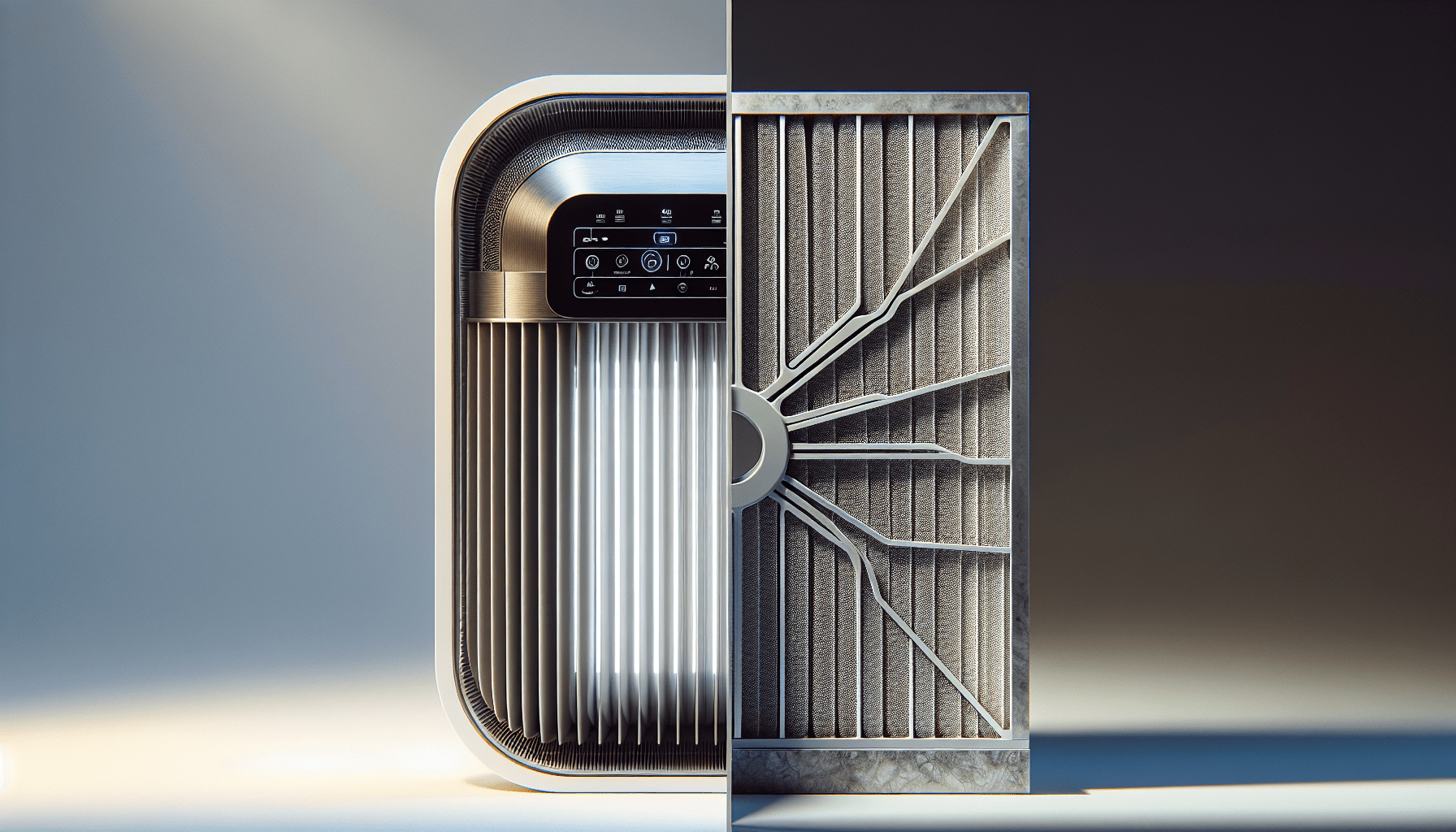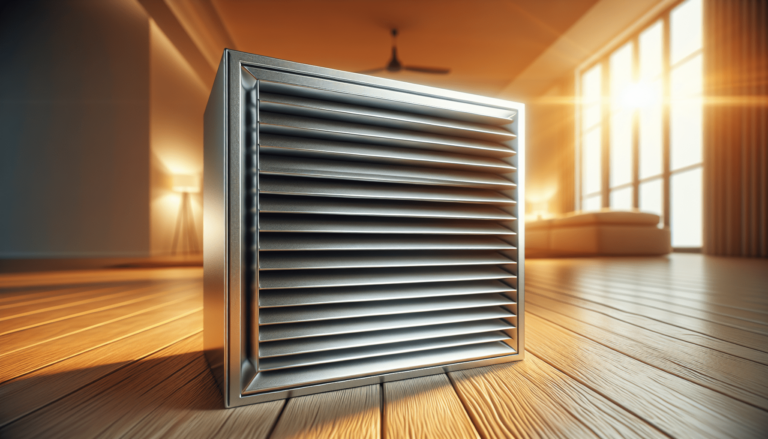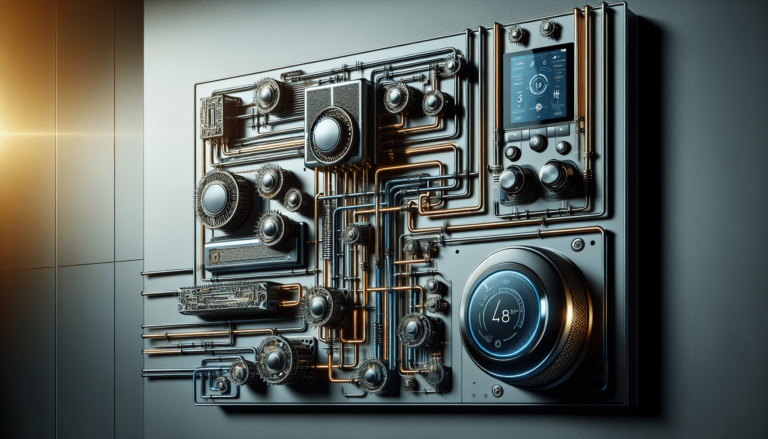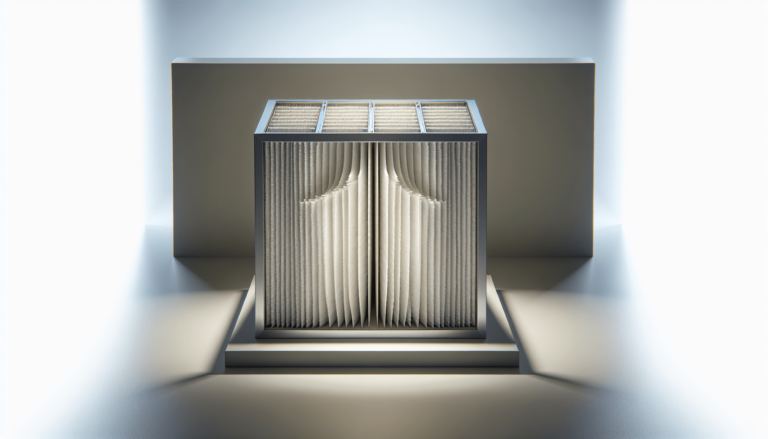

HVAC Services
Get Professional Repairs From The Area's Trusted HVAC Technicians. Ask About Our Services! We Offer Professional Heating & Cooling System Repairs And Guarantee Long-Lasting Results.
Got Question? Call us: (850) 678-2665Financing
Air Purifiers Vs. HVAC Filters: What’s The Difference?
Explore the key differences between air purifiers and HVAC filters. Discover which option best suits your indoor air quality needs for a fresher home or office environment.

Have you ever wondered about the differences between air purifiers and HVAC filters? You’re certainly not alone. These two tools play a vital role in maintaining indoor air quality, yet they often get lumped together in one confusing bundle. Let’s unravel these mysteries together and see what sets them apart, and which one might be the perfect fit for your home or office environment.

Understanding the Basics of Indoor Air Quality
Before we jump into the nitty-gritty, it’s crucial to grasp why indoor air quality (IAQ) matters so much. According to the Environmental Protection Agency, indoor air can be two to five times more polluted than outdoor air. This might sound surprising, especially since your indoors feel like the safest haven. Yet, without proper ventilation or air-cleaning systems, various pollutants can silently accumulate, affecting health and comfort.
Why Should You Care About IAQ?
You might ask, “Why should I care?” Well, poor indoor air quality can lead to an array of health issues, from allergies and asthma to more severe respiratory conditions. Your wellness, productivity, and overall happiness can take a hit when air quality is compromised. Thus, ensuring clean air is crucial for anyone spending significant time indoors, which is most of us, especially during the hotter or colder months when windows stay shut.
What Are Air Purifiers?
Air purifiers are standalone devices designed to remove contaminants from the air in a room. These gadgets target impurities like dust, allergens, smoke, odors, and even some bacteria and viruses. You can find them in all shapes and sizes, from compact models perfect for small rooms to larger units capable of treating entire floors.
How Do Air Purifiers Work?
Air purifiers usually employ a fan that draws air in, passes it through a filter or series of filters, and then pushes the cleaned air back out. The most common filters are HEPA (High-Efficiency Particulate Air) filters, which can trap 99.97% of particles as small as 0.3 microns. Some purifiers use additional technology like activated carbon, UV light, or ionizers to tackle specific types of pollutants.
Pros and Cons of Air Purifiers
To help visualize their benefits and drawbacks, let’s create a simple table:
| Pros | Cons |
|---|---|
| Effective at removing a wide range of pollutants | Can be noisy, depending on model |
| Portable and easy to install | Require regular filter changes |
| Versatile, with various models available for different needs | Some models can be pricey |
What Are HVAC Filters?
HVAC (Heating, Ventilation, and Air Conditioning) filters are integral parts of your central air system. They are not independent devices, like air purifiers, but rather crucial components of the heating and cooling system tasked with filtering air as it circulates through your home or building.
How Do HVAC Filters Work?
As air flows through your HVAC system, it passes through the filter, which captures dust, pollen, and other airborne particles. There are different types of HVAC filters, such as fiberglass, pleated, and electrostatic, each with varying degrees of efficiency, typically measured by the MERV (Minimum Efficiency Reporting Value) rating.
Pros and Cons of HVAC Filters
Here’s how HVAC filters stack up:
| Pros | Cons |
|---|---|
| Integral to your existing HVAC system | Limited filtering capability for tiny particles |
| Helps prolong the life of your HVAC system | Must be replaced regularly to maintain efficiency |
| Cost-effective in the short term | Not designed to tackle odors or gases |
Key Differences Between Air Purifiers and HVAC Filters
Let’s differentiate these two formidable allies in the battle against indoor pollution:
Purpose and Design
Air purifiers are designed specifically to clean air in a specific area, while HVAC filters are meant to protect your HVAC system and provide basic filtration of circulated air. Purifiers are standalone units, while HVAC filters are part of a larger system.
Efficiency and Scope
Air purifiers generally offer a higher level of filtration across a wider range of pollutants, including those pesky odors and some microorganisms. HVAC filters are more about basic dust and large particle filtration, mainly serving to protect the HVAC system from damage.
Customization and Flexibility
Air purifiers provide the flexibility to deploy different technologies targeting specific concerns, such as smoke or allergens, whereas HVAC filters are limited by the specifications of your HVAC system. The choice of HVAC filter is often dictated by the system’s model and MERV compatibility.

Choosing the Right Air Cleaning Solution
Now that we’ve outlined the key differences, the question arises: Which option is more suitable for your needs? The answer depends largely on your specific situation and goals.
When to Choose an Air Purifier
If you’re particularly sensitive to allergens or odors, or if anyone in your household has respiratory issues, an air purifier might be the more beneficial choice. They’re also a good option for rental properties or homes without an existing HVAC system, providing a level of air cleansing that standard HVAC filters can’t achieve.
When to Opt for HVAC Filters
If you’re primarily concerned with maintaining your HVAC system and reducing large pollutants like dust, an upgraded HVAC filter could suffice. It is cost-effective and easy to integrate since it’s already part of your existing infrastructure.
Are Combined Solutions a Good Idea?
Some might consider using both air purifiers and HVAC filters: is this synergy worth it? Generally, for those who prioritize air quality and want the best of both worlds, coupling them can be quite effective. An HVAC filter will handle the bulk pollutants, while an air purifier can target more stubborn contaminants and odors.
A Word on Maintenance
Each option requires maintenance; air purifiers need periodic filter changes based on usage and model, while HVAC filters should be changed every 30 to 90 days, depending on the type. Sticking to a regular maintenance schedule ensures maximum effectiveness and longevity for both systems.
Recommendations for Purchasers
If considering an air purifier or an upgraded HVAC filter, take time to research and choose products that align closely with your needs.
- For Air Purifiers: Look for HEPA-certified ones and consider additional features like carbon filters if odors are a concern.
- For HVAC Filters: Check your system’s user manual for the recommended MERV rating to avoid restricting airflow, which can damage the system.
Should you have more questions or need further guidance, reaching out to professionals like those at Tempacure Heating and Air Conditioning could prove invaluable. They can offer advice tailored to your unique situation, helping ensure your indoor environment remains healthy and comfortable year-round.
In a nutshell, while both air purifiers and HVAC filters serve to improve air quality, their methods and suitable applications differ. An informed decision based on your specific needs will lead you to a cleaner, healthier indoor space that aligns perfectly with your lifestyle. With the right choice, you’re bound to breathe easier, literally and figuratively!







